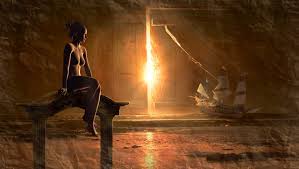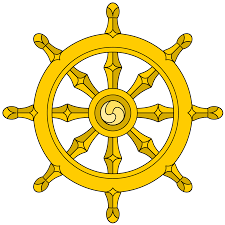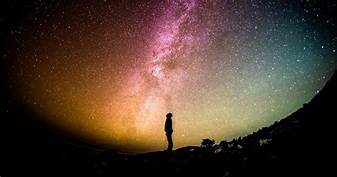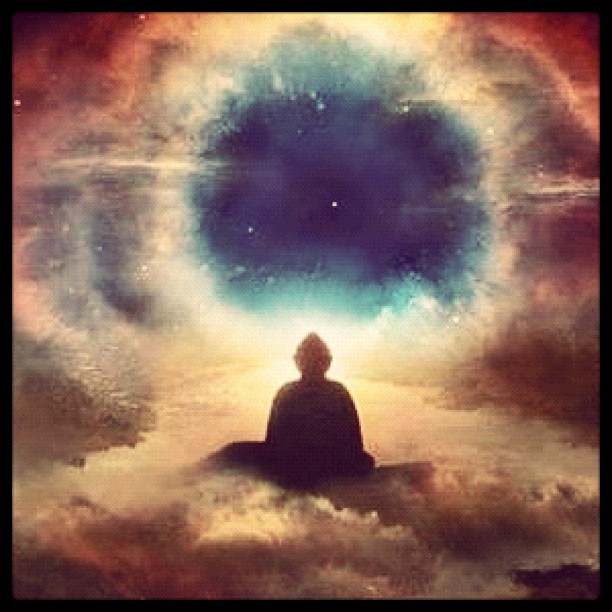
It has been suggested to me recently that I’m inclined toward magical thinking. It’s set me to thinking, analytically that is. It doesn’t come as a surprise that I would be seen as a magical thinker. I’m a believer in a lot of stuff, probably bordering on naive at times. I don’t see myself as gullible, but I tend to believe all things are possible. I have a deep sense that everything happens for a reason. I believe that our identity lies in our spiritual nature, not in our names or bodies. I see complete understanding (enlightenment) as our destiny individually and collectively. But I haven’t always been right in my beliefs. So, I’ve decided to take a closer look at magical thinking versus critical thinking. Perhaps we can all benefit from greater clarity along these lines.
What is Magical Thinking?
I’ve had the impression it meant different things to different people. To provide a thread of consistency, I’ve now found a few definitions I’ll share with you.
From Brittanica.com: “Magical thinking, the belief that one’s ideas, thoughts, actions, words, or use of symbols can influence the course of events in the material world. Magical thinking presumes a causal link between one’s inner, personal experience and the external physical world. Examples include beliefs that the movement of the Sun, Moon, and wind or the occurrence of rain can be influenced by one’s thoughts or by the manipulation of some type of symbolic representation of these physical phenomena.”
From Psychology Today.com: Dr. Alex Lickerman writes, “Magical thinking is defined as believing that one event happens as a result of another without a plausible link of causation.” He follows this with an excellent discussion about what constitutes magical thinking and what does not. Among many others, he makes the point that truth is largely subjective, but we must be sure to maintain a healthy skepticism when coming to any conclusions.
From Scientific American.com: “ ‘Magical thinking’ (as it has been called) is defined as the belief that an object, action or circumstance not logically related to a course of events can influence its outcome.”
Critical Thinking

The Oxford Dictionary defines critical thinking as “the objective analysis and evaluation of an issue in order to form a judgment.”
Here’s a more sweeping description from the website criticalthinking.org: “Critical thinking is the intellectually disciplined process of actively and skillfully conceptualizing, applying, analyzing, synthesizing, and/or evaluating information gathered from, or generated by, observation, experience, reflection, reasoning, or communication, as a guide to belief and action.”
The Envelope, Please
Based on what we’ve just read, it would seem a person would have to be a fool to consider magical thinking as superior to critical thinking. Being a critical thinker means using actual proof versus belief or blind faith…working with scientific method as opposed to someone’s word or one’s own intuition…determining answers to questions without bias, rejecting findings that don’t stand up to the scrutiny of logic.
I can’t argue with that, as far as it goes. Admittedly, it goes pretty far. Science does have its limitations, however. Ponder this for a moment. Of all that is knowable in this universe, what percentage of it has science proven to be true. Must it not be infinitesimal? And doesn’t science deal primarily with matter, energy, and space? There are still frontiers on this planet alone that are largely awaiting investigation, such as the deep ocean or the plane of quantum fields. The full workings of the mind are far from understood by scientists. They are good at what they do, but there’s so much they haven’t done.
By the way, science evolves. Many of its discoveries of truth are eventually proven untrue and replaced with better ones.
What Do You Know?
I submit the concept that we can know things without having performed experiments to prove them. Here are some common examples.
- People can realize who is calling them before the phone rings.
- I think, therefore I am.
- Having certainty of an ability to do a challenging task.
- Understanding truth when it is realized.
- Sensing a bond of friendship.
These are levels of knowing that are personal and unshakable if we just accept our capability to know. Can transference of this knowing into intention and exerting it upon the exterior world only through thought have observable influence? Is this merely magical thinking or is there some potential in this type of thinking? At this stage of our development, it’s a matter of faith, but there are cases where people have made convincing demonstrations of “mind over matter.”
The Truth Within
Critical thinking is a vital part of our survival skills. The human brain gives us this talent we should never waste. By the same token, some of the great minds in history have told us “Truth lies within.”
Within lies conscience, untapped love, compassion and wisdom reflected back to us if we will just look in honest inquiry. There is so much to be found and this too should not be wasted. Carl Jung stated it magnificently. “Your vision becomes clear when you look inside your heart. Who looks outside, dreams. Who looks inside, awakens.”



